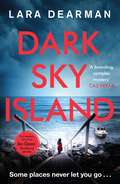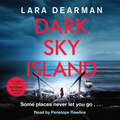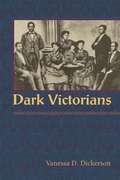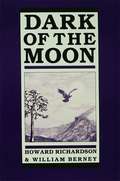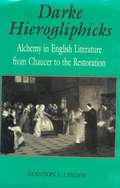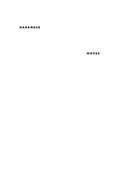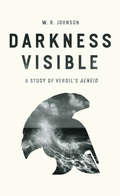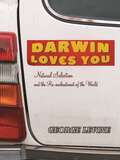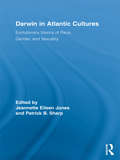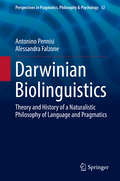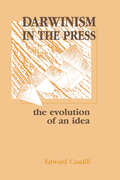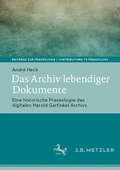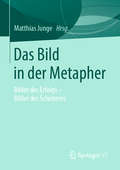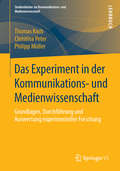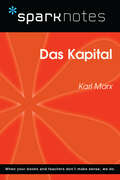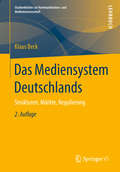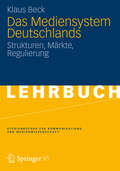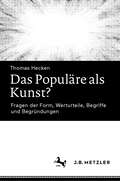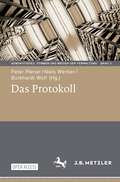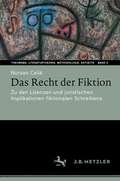- Table View
- List View
Dark Sky Island: A chilling mystery set on the Channel Islands (Jennifer Dorey)
by Lara Dearman'A brooding, complex mystery' CAZ FREAR'A deeply atmospheric and gripping thriller with a wonderful sense of place' ROZ WATKINSThere's a killer on the island - and someone knows who...When human bones are found in a remote bay in the Channel Islands, DCI Michael Gilbert is plunged into an investigation to find out who they belong to. The remains are decades old - but after another body is discovered, the police realise they could be dealing with a serial killer. Journalist Jennifer Dorey is desperate for answers, driven by a secret of her own - but it soon becomes clear that nobody on the island is quite what they seem. Will anyone tell the truth before it's too late? Or will the killer on the island strike again...?A gripping thriller, perfect for fans of Ann Cleeves and Peter May.
Dark Sky Island: A chilling mystery set on the Channel Islands (Jennifer Dorey)
by Lara Dearman'A brooding, complex mystery' CAZ FREAR'A deeply atmospheric and gripping thriller with a wonderful sense of place' ROZ WATKINSThere's a killer on the island - and someone knows who...When human bones are found in a remote bay in the Channel Islands, DCI Michael Gilbert is plunged into an investigation to find out who they belong to. The remains are decades old - but after another body is discovered, the police realise they could be dealing with a serial killer. Journalist Jennifer Dorey is desperate for answers, driven by a secret of her own - but it soon becomes clear that nobody on the island is quite what they seem. Will anyone tell the truth before it's too late? Or will the killer on the island strike again...?A gripping thriller, perfect for fans of Ann Cleeves and Peter May.
Dark Victorians
by Vanessa D. DickersonDark Victorians illuminates the cross-cultural influences between white Britons and black Americans during the Victorian age. In carefully analyzing literature and travel narratives by Ida B. Wells, Harriet Martineau, Charles Dickens, Frederick Douglass, Thomas Carlyle, W.E.B. Du Bois, and others, Vanessa D. Dickerson reveals the profound political, racial, and rhetorical exchanges between the groups. From the nineteenth-century black nationalist David Walker, who urged emigrating African Americans to turn to England, to the twentieth-century writer Maya Angelou, who recalls how those she knew in her childhood aspired to Victorian ideas of conduct, black Americans have consistently embraced Victorian England. At a time when scholars of black studies are exploring the relations between diasporic blacks, and postcolonialists are taking imperialism to task, Dickerson considers how Britons negotiated their support of African Americans with the controlling policies they used to govern a growing empire of often dark-skinned peoples, and how philanthropic and abolitionist Victorian discourses influenced black identity, prejudice, and racism in America.
Dark and Stormy Rides Again: The Best from the Bulwer-Lytton Fiction Contest
by Scott RiceThe Bulwer-Lytton Fiction Contest, named in honor of the Victorian literary has-been Edward Bulwer-Lytton, is the world-famous competition that seeks to find the most atrocious opening sentence to a hypothetical lousy novel. Dark and Stormy Rides Again proves that there are still committed writers out there plumbing their inner souls for truly bad writing. Choice entries include: * "There was considerable consternation among the cats in the coliseum when it was learned that the tigers were taking the lion's share of the prophets." * "Those alarm things that make a real loud honking kind of noise were going off as Captain James Hurley "stared at the screen that showed him the stuff that was outside in space while he sat in the chair that the captain sits in, and slowly reached for the control panel for the thing that makes the ship go real fast."
Dark of the Moon
by Howard Richardson William BerneyAs the tale unfolds, a witch boy tarries in a mountain community in love with a beautiful girl named Barbara Allen. The superstitious townspeople resent their happiness and their subsequent meddling ends in violence and tragedy. This play was proclaimed a Broadway hit.
Darke Hierogliphicks: Alchemy in English Literature from Chaucer to the Restoration
by Stanton J. LindenThe literary influence of alchemy and hermeticism in the work of most medieval and early modern authors has been overlooked. Stanton provides the first comprehensive examination of this influence on English literature from the late middle Ages.
Darkness Moves
by Henri MichauxHenri Michaux defies common critical definition. Critics have compared his work to such diverse artists as Kafka, Goya, Swift, Klee, and Beckett. Allen Ginsberg called Michaux "genius," and Jorge Luis Borges wrote that Michaux's work "is without equal in the literature of our time." This anthology contains substantial selections from almost all of Michaux's major works, most never before published in English, and allows readers to explore the haunting verbal and pictorial landscape of a twentieth-century visionary.
Darkness Visible: A Study of Vergil's "Aeneid"
by W.R. JohnsonOne of the best books ever written on one of humanity’s greatest epics, W. R. Johnson’s classic study of Vergil’s Aeneid challenges centuries of received wisdom. Johnson rejects the political and historical reading of the epic as a record of the glorious prehistory of Rome and instead foregrounds Vergil’s enigmatic style and questioning of the heroic myths. With an approach to the text that is both grounded in scholarship and intensely personal, and in a style both rhetorically elegant and passionate, Johnson offers readings of specific passages that are nuanced and suggestive as he focuses on the “somber and nourishing fictions” in Vergil’s poem. A timeless work of scholarship, Darkness Visible will enthrall classicists as well as students and scholars of the history of criticism—specifically the way in which politics influence modern readings of the classics—and of poetry and literature.
Darwin Loves You: Natural Selection and the Re-enchantment of the World
by George LevineJesus and Darwin do battle on car bumpers across America. Medallions of fish symbolizing Jesus are answered by ones of amphibians stamped "Darwin," and stickers proclaiming "Jesus Loves You" are countered by "Darwin Loves You." The bumper sticker debate might be trivial and the pronouncement that "Darwin Loves You" may seem merely ironic, but George Levine insists that the message contains an unintended truth. In fact, he argues, we can read it straight. Darwin, Levine shows, saw a world from which his theory had banished transcendence as still lovable and enchanted, and we can see it like that too--if we look at his writings and life in a new way. Although Darwin could find sublimity even in ants or worms, the word "Darwinian" has largely been taken to signify a disenchanted world driven by chance and heartless competition. Countering the pervasive view that the facts of Darwin's world must lead to a disenchanting vision of it, Levine shows that Darwin's ideas and the language of his books offer an alternative form of enchantment, a world rich with meaning and value, and more wonderful and beautiful than ever before. Without minimizing or sentimentalizing the harsh qualities of life governed by natural selection, and without deifying Darwin, Levine makes a moving case for an enchanted secularism--a commitment to the value of the natural world and the human striving to understand it.
Darwin in Atlantic Cultures: Evolutionary Visions of Race, Gender, and Sexuality
by Patrick B. Sharp Jeannette Eileen JonesThis collection is an interdisciplinary edited volume that examines the circulation of Darwinian ideas in the Atlantic space as they impacted systems of Western thought and culture. Specifically, the book explores the influence of the principle tenets of Darwinism -- such as the theory of evolution, the ape-man theory of human origins, and the principle of sexual selection -- on established transatlantic intellectual traditions and cultural practices. In doing so, it pays particular attention to how Darwinism reconfigured discourses on race, gender, and sexuality in a transnational context. Covering the period from the publication of The Origin of Species (1859) to 1933, when the Nazis (National Socialist Party) took power in Germany, the essays demonstrate the dissemination of Darwinian thought in the Western world in an unprecedented commerce of ideas not seen since the Protestant Reformation. Learned societies, literary groups, lyceums, and churches among other sites for public discourse sponsored lectures on the implications of Darwin’s theory of evolution for understanding the very ontological codes by which individuals ordered and made sense of their lives. Collectively, these gatherings reflected and constituted what the contributing scholars to this volume view as the discursive power of the cultural politics of Darwinism.
Darwin's Plots
by Gillian BeerGillian Beer's classic Darwin's Plots, one of the most influential works of literary criticism and cultural history of the last quarter century, is here reissued in an updated edition to coincide with the anniversary of Darwin's birth and of the publication of The Origin of Species. Its focus on how writers, including George Eliot, Charles Kingsley and Thomas Hardy, responded to Darwin, Aos discoveries and to his innovations in scientific language continues to open up new approaches to Darwin's thought and to its effects in the culture of his contemporaries. This third edition includes an important new essay that investigates Darwin's concern with consciousness across all forms of organic life. It demonstrates how this fascination persisted throughout his career and affected his methods and discoveries. With an updated bibliography reflecting recent work in the field, this book will retain its place at the heart of Victorian studies
Darwinian Biolinguistics: Theory and History of a Naturalistic Philosophy of Language and Pragmatics (Perspectives in Pragmatics, Philosophy & Psychology #12)
by Antonino Pennisi Alessandra FalzoneThis book proposes a radically evolutionary approach to biolinguistics that consists in considering human language as a form of species-specific intelligence entirely embodied in the corporeal structures of Homo sapiens. The book starts with a historical reconstruction of two opposing biolinguistic models: the Chomskian Biolinguistic Model (CBM) and the Darwinian Biolinguistic Model (DBM). The second part compares the two models and develops into a complete reconsideration of the traditional biolinguistic issues in an evolutionary perspective, highlighting their potential influence on the paradigm of biologically oriented cognitive science. The third part formulates the philosophical, evolutionary and experimental basis of an extended theory of linguistic performativity within a naturalistic perspective of pragmatics of verbal language. The book proposes a model in which the continuity between human and non-human primates is linked to the gradual development of the articulatory and neurocerebral structures, and to a kind of prelinguistic pragmatics which characterizes the common nature of social learning. In contrast, grammatical, semantic and pragmatic skills that mark the learning of historical-natural languages are seen as a rapid acceleration of cultural evolution. The book makes clear that this acceleration will not necessarily favour the long-term adaptations for Homo sapiens.
Darwinism in the Press: the Evolution of An Idea (Routledge Communication Series)
by Edward CaudillNumerous books and articles have outlined Darwin's impact on American scientists, philosophers, businessmen, and clergy in the 19th and early 20th centuries. Few, however, have undertaken a study of Darwinism in the form in which it was presented to most Americans -- popular newspapers and magazines. The main concern of this book is to identify how the press is treated as a part of our culture - - pointing to its ability to shape and to be shaped by the forces that act on the rest of society and its ability to be critical in the interpretation of ideas for "the masses."
Das Archiv lebendiger Dokumente: Eine historische Praxeologie des digitalen Harold Garfinkel Archivs (Beiträge zur Praxeologie / Contributions to Praxeology)
by André HeckAls „Vater&“ der Ethnomethodologie war Harold Garfinkels übergreifendes Anliegen „the study of the everyday practices used by the ordinary members of society in order to deal with their day-to-day lives&”. Seine Herangehensweise und die Konzipierung der Ethnomethodologie entspringen fundamental einer Kritik an Auguste Comtes Individualismus, welche zuerst von Émile Durkheim vorgetragen und von Talcott Parsons weiterentwickelt wurde, welcher schließlich Garfinkels Dissertation an der Universität Harvard betreute. In den folgenden sieben Jahrzehnten wurde die Ethnomethodologie zu einer ebenso einflussreichen wie kontrovers diskutierten Strömung, nicht nur innerhalb der Soziologie, sondern in einer Vielzahl von Wissenschaftszweigen. Die vorliegende Arbeit zeigt, wie der Aufbau eines virtuellen Archivs basierend auf der Sammlung von Unterlagen aus Harold Garfinkels persönlichem Büro einen Beitrag zur Entwicklung einer „Sociological Theory of Information&“ in seinem Sinne leistet.
Das Bild in der Metapher: Bilder des Erfolgs – Bilder des Scheiterns
by Matthias JungeBilder und bildliche Vorstellungen bestimmen von der frühesten Kommunikation an unseren Zugang zur Welt. Das Ziel des Bandes ist eine umfassende Aufklärung der Prägung unserer Welt durch die verwendeten Bilder entlang ausgewählter Beispiele alltäglicher Bildlichkeit.
Das Bilderbuch: Theoretische Grundlagen und analytische Zugänge
by Ben Dammers Anne Krichel Michael StaigerDas Bilderbuch ist ein vielschichtiges multimodales Erzählmedium, das in den vergangenen Jahrzehnten einen tiefgreifenden ästhetischen Wandel durchlaufen hat. Dieser Band bietet eine umfassende Grundlage für die Arbeit in Lehrveranstaltungen: Im ersten Teil wird in die Theorie und Geschichte des Bilderbuchs eingeführt und ein sechsdimensionales Analysemodell vorgestellt. Der zweite Teil enthält fünfzehn Modellanalysen mit jeweils unterschiedlichen Fokussierungen, z.B. zu Aspekten der bildlichen und sprachlichen Gestaltung im Bilderbuch oder zu ausgewählten Gattungen und Themen. – Mit Leitfragen zur Analyse und vielen farbigen Abbildungen.
Das Experiment in der Kommunikations- und Medienwissenschaft: Grundlagen, Durchführung und Auswertung experimenteller Forschung (Studienbücher zur Kommunikations- und Medienwissenschaft)
by Thomas Koch Christina Peter Philipp MüllerDas Lehrbuch bietet einen umfassenden Überblick über das sozialwissenschaftliche Experiment. Es stellt Grundlagen und zentrale Begriffe vor und dient als praktischer Leitfaden, um Experimente durchzuführen. Mit zahlreichen Beispielen aus der Kommunikationswissenschaft liefert dieses Buch eine umfassende Hilfestellung für Methodenkurse und empirische Forschungsprojekte, die sich der experimentellen Forschung widmen.
Das Formular (AdminiStudies. Formen und Medien der Verwaltung #1)
by Niels Werber Peter Plener Burkhardt WolfWenn stimmt, was bereits Friedrich Schiller beklagt hat: dass der Mensch in der modernen Gesellschaft „zum Formular geworden“ ist, dann steht mit diesem unscheinbaren Verwaltungs-tool nichts weniger als unsere Lebenswirklichkeit auf dem Spiel. Der erste (Open Access-)Band der Reihe AdminiStudies beschäftigt sich deshalb mit der Funktion und Geschichte von Formularen, jenen institutionalisierten Lückentexten, die den Alltag der Bürger dadurch entscheidend prägen, dass sie die Befehlsgewalt des Staats und seinen Willen zum Wissen auf zwingende Weise verschränken. Von Blanketten und handgeschriebenen Formularbüchern über Vordrucke zur militärischen und steuerlichen Erfassung bis hin zu den Telegramm-Vorlagen des 19. Jahrhunderts und zu den digitalen Schreibfeldern heutiger Ämter und Social Media reicht die Macht- und Mediengeschichte des Formulars. Die Grenze zwischen Untertanen, Bürgern und Kunden ist durchlässig geworden, und an den Affordanzen digitaler Formulare lassen sich die gegenwärtigen Bauformen administrativer Herrschaft ablesen.
Das Kapital (SparkNotes Philosophy Guide)
by SparkNotesDas Kapital (SparkNotes Philosophy Guide) Making the reading experience fun! SparkNotes Philosophy Guides are one-stop guides to the great works of philosophy–masterpieces that stand at the foundations of Western thought. Inside each Philosophy Guide you&’ll find insightful overviews of great philosophical works of the Western world.
Das Mediensystem Deutschlands: Strukturen, Märkte, Regulierung (Studienbücher Zur Kommunikations- Und Medienwissenschaft Ser.)
by Klaus BeckDiese Einführung bietet eine historisch fundierte (ab 1945) systematische Darstellung der Grundstrukturen des bundesdeutschen Mediensystems und seiner kommunikationspolitischen Genese, insbesondere der ökonomischen, rechtlichen und technischen Grundlagen und Funktionsweisen der Medien der öffentlichen Kommunikation Printmedien, Rundfunk, Film, Online-Medien) sowie der medien-übergreifenden Strukturen/ Rahmenbedingungen (Nachrichten-, PR- und Werbeagenturen) sowie TK-Dienstleister. Darüber hinaus werden komparatistische Bezüge zu den Mediensystemen Österreichs und der Schweiz sowie Basisinformationen zu diesen beiden Mediensystemen hergestellt.
Das Mediensystem Deutschlands: Strukturen, Märkte, Regulierung (Studienbücher zur Kommunikations- und Medienwissenschaft)
by Klaus BeckDiese Einführung bietet eine historisch fundierte (ab 1945) systematische Darstellung der Grundstrukturen des bundesdeutschen Mediensystems und seiner kommunikationspolitischen Genese, insbesondere der ökonomischen, rechtlichen und technischen Grundlagen und Funktionsweisen der Medien der öffentlichen Kommunikation Printmedien, Rundfunk, Film, Online-Medien) sowie der medien-übergreifenden Strukturen/ Rahmenbedingungen (Nachrichten-, PR- und Werbeagenturen) sowie TK-Dienstleister. Darüber hinaus werden komparatistische Bezüge zu den Mediensystemen Österreichs und der Schweiz sowie Basisinformationen zu diesen beiden Mediensystemen hergestellt.
Das Nachrichtenverständnis junger Menschen: Definitionen und Erwartungen im Kontext aktueller journalistischer Information
by Markus WolsifferObwohl relativ viel über ihre Mediennutzung bekannt ist, weiß die Forschung erstaunlich wenig darüber, welche Erwartungen junge Menschen an journalistische Nachrichten richten. Ihre Perspektive wurde in Wissenschaft und Praxis lange vernachlässigt. Markus Wolsiffer setzt sich in diesem Band mit diesen Fragen auseinander und legt dar, weshalb die Erforschung des Nachrichtenverständnisses für eine Gesellschaft wichtig ist. Digitalisierung, wachsende Angebotsdifferenzierung und veränderte Nutzungsweisen führen zu Verwerfungen in der Medienwelt. Mittlerweile haben viele traditionelle Medienhäuser große Probleme, junge Menschen überhaupt noch zu erreichen. Jenseits ökonomischer Kalküle stellen sich damit auch normativ-demokratietheoretische Fragen: Was passiert mit einer Gesellschaft, wenn Nachrichten an Bedeutung verlieren und nichtjournalistische Plattformen zur bevorzugten Informationsquelle werden? Mit einer Kombination aus quantitativer und qualitativer Forschung liefert Markus Wolsiffer wichtige empirisch-analytische Grundlagen. Zugleich vermitteln seine Ergebnisse auch praktische Hinweise für Medienmacher und die Branche insgesamt.
Das Populäre als Kunst?: Fragen der Form, Werturteile, Begriffe und Begründungen
by Thomas HeckenPopulären Werken wird seit Jahrhunderten der Status des Kunstwerks aberkannt, unter Verweis auf deren vermeintliche Oberflächlichkeit, Eindimensionalität, Effekthascherei und Standardisierung werden sie streng von ‚echter‘ Kunst geschieden. Schiller, Nietzsche, Adorno, Greenberg, unzählige Kritiker und Feuilletonisten in Westeuropa und den USA – sie alle eint ein starker Vorbehalt gegenüber dem, was von den Vielen anerkannt, geschätzt und gekauft wird. Seit Beginn des 18. Jahrhunderts und besonders seit den 1950er Jahren gibt es aber auch eine Reihe von Argumenten gegen die Auffassung, dass nichts Kunst sei, was auf große Zustimmung trifft. Die Fülle an unterschiedlichen Positionen, Aussagen und Argumentationsmöglichkeiten aufzuzeigen, zu bündeln, zu systematisieren und zu überprüfen, die dem Populären zu künstlerischer Anerkennung verhelfen wollen, ist Zweck dieses Buches. Das Resultat ist eine umfassende Darstellung von Gründen, auch populäre Werke aus Literatur, Musik, Film, Fotografie, bildender Kunst und Design als genuine Kunstwerke betrachten zu können.
Das Protokoll (AdminiStudies. Formen und Medien der Verwaltung #2)
by Niels Werber Peter Plener Burkhardt WolfProtokolle stehen im Zentrum unterschiedlichster (interaktiver, papierener oder auch elektronischer) Verwaltungsoperationen: Sie halten ebenso fest, was gesagt und beschlossen wurde, wie sie festlegen, was wie zu tun ist. Sie strukturieren, regulieren und dokumentieren Sprech- und Handlungsabläufe von ministeriellen Zusammenkünften, Gerichtsterminen und anderen komplexen Arbeitsprozessen. Seit Jahrhunderten schreiben Protokolle auf und vor, was zu tun und was zu lassen ist, was als notwendig gilt oder als unwichtig und marginal. Sie filtern aus komplexen Interaktionen das heraus, was jene Vergangenheit gewesen sein wird, auf die man sich künftig bezieht. Dabei arbeiten Protokolle letztlich ein und demselben Zweck zu: dass – auf begründete und regelgeleitete Weise – überhaupt etwas entschieden wird. Vor diesem Hintergrund und mit verwaltungshistorischen und soziologischen ebenso wie medien-, kultur- und literaturwissenschaftlichen Perspektiven greift der zweite Open Access-Band der AdminiStudies drei Hauptformen dieses Verwaltungsmediums auf: Gesprächs- bzw. Verlaufsprotokolle, diplomatische und technische Protokolle.
Das Recht der Fiktion: Zu den Lizenzen und juristischen Implikationen fiktionalen Schreibens (Theorema. Literaturtheorie, Methodologie, Ästhetik #3)
by Nursan CelikVerrechtlichungsprozesse von Literatur stellen als Kollisionsfall von Kunstfreiheit und allgemeinem Persönlichkeitsrecht nicht nur für die Jurisprudenz eine Herausforderung dar. Auch die Fiktionstheorie findet im besonderen Redestatus und den Fiktionslizenzen der Literatur ein reiches Feld. Die vorliegende Studie widmet sich systematisch anhand tatsächlich verhandelter Fälle und mit Blick auf neuere Fiktionsansätze der Frage, ob fiktionalen Texten Persönlichkeitsrechtsverletzungen angelastet werden können. Hierfür wird ausgehend von der Referenzstruktur fiktionaler Literatur untersucht, in welchen Fällen sich Elemente in der Darstellung literarischer Figuren auf reale Personen beziehen lassen und infolgedessen justiziabel werden können.
